ResearchDC.com Presents: Dr. Abdusalam Omer


ResearchDC.com Presents:
Dr. Abdusalam Omer
Dr. Abdusalam Omer’s professional career has been remarkably consistent and productive. He received his Bachelor of Science in Economics in 1977 from Boston College, his Master of the Arts in Public Administration from Oklahoma State University in 1981, and his PhD in Public Administration from the University of Tennessee in 1986, while teaching undergraduates American politics, public and personnel administration, budgeting and program evaluation.
Abdusalam Omer spent 1987 in New York City as a Research Associate with ACRC Systems, and moved to Washington and served as an international student advisor on immigration and naturalization issues at Southeastern University in 1989. He moved on to become a management and budget analyst for Prince William County capital improvement projects for three years, while also serving briefly as a consultant in international finance to the Africa Region of the World Bank.
In 1992, Dr. Abdusalam Omer joined the DC Budget Office, serving first as a senior budget analyst for Public Safety and Education, then as Team Leader for Public Education in the CFO’s office. In August 1996, Dr. Omer became the Chief Financial Officer for the DC Public Schools, responding to Congressional and Control Board guidance.
In May 1997 Dr. Abdusalam Omer returned to become DC’s Deputy CFO under Anthony Williams, charged with preparing the city’s operating and capital budgets, where he instituted changes in format and processes, developed in-depth policy and budget analysis, and submitted balanced budgets for three consecutive years. (It was during this strenuous time that his capabilities drew NARPAC’s attention and admiration.)
In April 1999, Abdusalam Omer was appointed by the Mayor as his Chief of Staff where he supervised a senior level staff of 75 in the Mayor’s Executive Office, dealing with all aspects of DC’s $5 billion government and well over 28,000 employees, and providing support and guidance to the deputy mayors and agency directors. His responsibilities ranged from political relations with Congress and the Council, to responding to (endless) constituent concerns, interacting with the press, and formulating the administration’s overall policy agenda, from strategic planning to performance goals.
In April 2001, Abdusalam Omer was recruited the World Bank East Asia and Pacific region cluster as an expert consultant in municipal finances. Dr Abdusalam Omer was engaged in support of the Shanghai municipal government in china. In Feburary 2002, Dr. Abdusalam Omer was recurited by the United Nations Development program (UNDP) to lead the Governance and Financial Services Program (GFS) in Somalia. Abdusalam Omer served and led the governance and financial services particularly of Somaliland and Puntland the only two successful entities in the country.
The GFS program included local government budget and financial management , training in tax collection and with support from UN Habitat created urban planning and desgin unitsfor seclected cities and designated land management. Dr. Omer led efforts to established public Administration institute, and introduced distance learning to six univerisites. Dr. Abdusalam Omer is credited to establish first UN remittance program which was designed to support private sector develpoment in Somalia. In addition, Dr. Abdusalam Omer implemented training projects for over a 100 financial analysts as a part of the UN/World Bank Low Income Countries under Stress (LICUS) program and participated the writing of the Country Economic Report of Somalia.
After four years of successful service to the United Nations Dr. Abdusalam Omer returned to Washington, DC. In February 2007, Dr. Abdusalam Omer was hired as Chief Business Officer (CBO) for District of Columbia Public Schools (DCPS) as member of a senior leadership that is entrusted to restore the confidence of the public in the school system. Specifically, Dr. Abdusalam Omer plays a major role in the strategic planning and managing a network of support services to include facilities management, information systems, procurement, food service, security, and real property management. He was credit with rebuilding 6 schools
• Can the d.c. schools be fixed?
Washington Post Staff Writers
Many students and teachers spend their days in an environment hostile to learning. Just over half of teenage students attend schools that meet the District’s definition of “persistently dangerous” because of the number of violent crimes, according to an analysis of school reports. Across the city, nine violent incidents are reported on a typical day, including fights and attacks with weapons. Fire officials receive about one complaint a week of locked fire doors, and health inspections show that more than a third of schools have been infested by mice.
“I don’t know if anybody knows the magnitude of problems at D.C. public schools. It’s mind-boggling,” said Abdusalam Omer, the school system’s chief business operations officer, who was hired in February to tackle payroll, purchasing, personnel and repair operations.
Omer, who worked for the schools as chief financial officer a decade ago, said little has changed.
“It’s like I’ve been in a coma for 10 years and just woke up,” said Omer, who left the schools to be chief of staff to former mayor Anthony A. Williams (D) and then worked in Kenya for the United Nations.
He said that when he walked into the personnel office this year, it was “strikingly scary” to find the mountain of boxes holding files on more than 11,000 employees.
The pressures on the schools to succeed have increased in recent years as a congressionally mandated experiment with independent, publicly funded charter schools has taken root. Viewed by proponents as a way to both improve the traditional public schools and give parents an option, charters have proven to be uneven in quality but hugely popular.
Nearly one-fourth of public school students now attend the city’s 55 charters, and because funding follows the students, regular public schools with shrinking enrollment are losing funds.”
DC PUBLIC SCHOOL NEWS: 2008
• NARPAC Presents its Third “Hats Off” award to Dr. Abdusalam Omer
“It is with great pleasure that NARPAC recognizes Abdusalam Omer, PhD for his extraordinary efforts to restore pride in America’s capital city.
For nine years, Dr. Abdusalam Omer has held increasingly important roles in shaping the future of the District of Columbia. First as a senior budget analyst and team leader, then as Chief Financial Officer for the troubled DC Public Schools, then for two years as Deputy Chief Finance Officer, restructuring and balancing DC’s runaway budget.Finally, for two grueling years as Chief of Staff, he faced the bureaucracy inside, and endless claimants on DC energies from the outside: Congress; Federal Agencies; City Council; Control Board; and activists.
A key member of DC’s dedicated band of reformers, Abdusalam Omer brought competence, compassion, and high standards to all his tasks. He understood government’s obligation to listen to, and serve the people of the city — starting with its young and disadvantaged. He saw government as people too, with needs, hopes and goals. He was mentor, catalyst, devil’s advocate, task master. His friend, the Mayor, has praised his passion and integrity. Dr. Omer deserves the gratitude of the people of DC, the Greater Washington Metro Area, and all across America who want to be proud of their nation’s capital city.
Thank you, Dr. Omer, and Godspeed in your future endeavors.”
-Narpac
• Conference on the Somali remmitance sector
The united nations development programme (UNDP) has played in crucial role ensuring the
continued operation of Somali remittance companies. during the “UNDP COnference on the somali remmitance sector”, Maxwell gaylard, resident representative, spoke, in particular, of the advocacy role that UNDP Somalia has played for the remittance sector.
He attributed the success that the organization has had in assisting the Somali remittance sector largely to Abdusalam Omer, Program Manager, Governance and Financial Services, UNDP Somalia.
For more information on the conference click here
• Central Bank Registers All Somali Remittance Agents
DUBAI – The UAE Central Bank has completed the formal registration of all Somali remittance and clearing houses operating in the UAE to regulate money transactions and remittances flowing to Somalia from here, according to a senior UNDP official.
The UAE Central Bank has been cooperative and supportive to the United Nation Development Programme initiative to ensure that the flow of money to Somalia remains open.
In an exclusive interview with Khaleej Times, Abdulsalam Omer, Programme Manager for Governance and Financial Services of the United Nation Development Programme (UNDP), said: “According to our assessment, the UAE Central Bank has been the world’s best financial regulator that treated Somali remittances in a prudent manner that allows fund transfers but through formal channels. Somali financial remittance houses are now operating in accordance with the host country’s regulations following the registration processes. The amount remitted via UAE is estimated between 50-70 million yearly.”
Asked about the purpose of the UNDP representatives to the UAE, Omer said: “In fact we are here to closely work with the Somali financial houses and the UAE monetary authorities to ensure that these operators and money changers are complying with anti-money laundering laws at global and host country levels.”
“Somali financial houses operating in the UAE have given full cooperation to the UAE Central Bank by adopting the new laws on hawala, and also showed interest in UNDP training courses organised to raise awareness and educate the attendees about the documentation they need to do to practice their trade,” he said.
“UNDP officials have found that the UAE financial authorities. particularly the Central Bank, and Somali clearing houses are working together to curb money laundering. This has encouraged us to take the initiative to train the staff to comply with the latest regulations,” said Omer.
He said:” Remittances are critical in meeting the immense humanitarian needs of the Somali people, therefore it is crucial to urgently resolve the matter to avert a catastrophe. It has been found by the UNDP that more than two million Somalis directly benefit from the remittance services to meet their daily needs which make up about 22.5 per cent of the total income of the Somali people.”
The UAE’s monetary authorities have been taking a series of strong measures to counter dirty money and they have successfully managed to do so, confirmed Omer. The total amount of remittances from overseas Somalis is between $800 million to $1 billion worldwide out of which around 50-70 million is remitted from UAE.
“The collapse of the central government in Somalia in 1991 has resulted in a lot of chaos in the financial systems of that country. There are no formal regulated financial channels that Somalis overseas can use to remit money to their families,” added Omer. “The main objective and the role of the UNDP is to identify the problem and then start addressing them in the right way. I guess we have done a relatively good job, yet there is a long way to go,” explained Omer.
Research DC
Researchdc.com is a real-time, research based website featuring the latest profiles of high quality, experienced professionals in the dc area. we are proud to feature dr. abdusalam omer in this edition.

 All Posts
All Posts

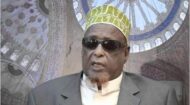
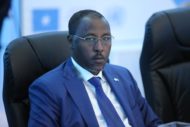
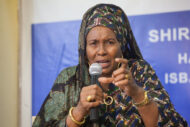

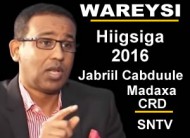

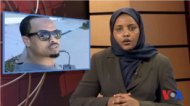
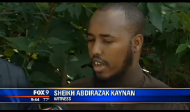

Waa yahay waa aqoonayahy laakinse Dr. Abdusalam Omer, xagee buu ku dhashay waan reerkuu u dhashay wuxuu u egyahay sawirkiisa reer Waqooyi-Somaliland.